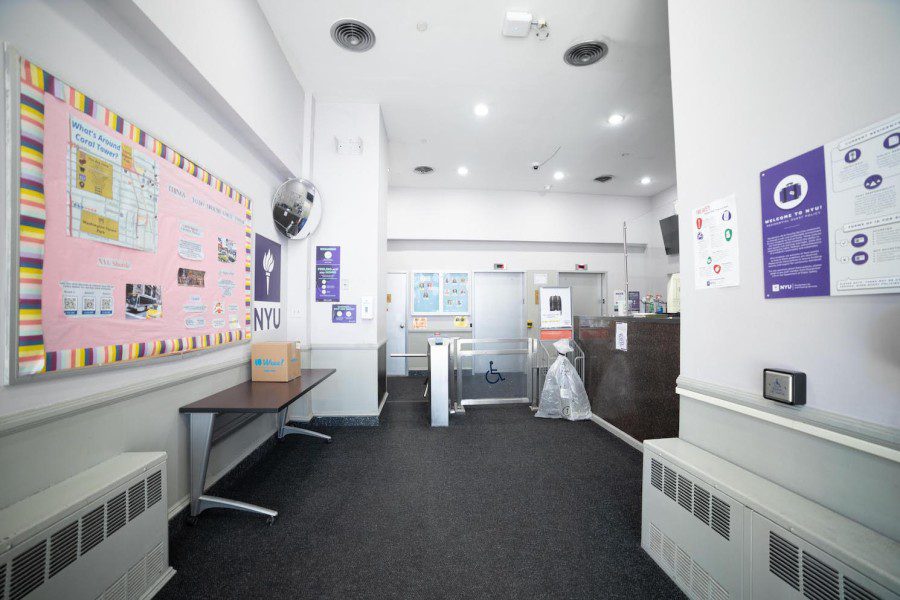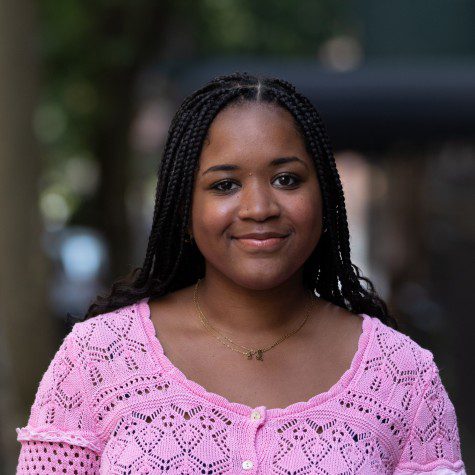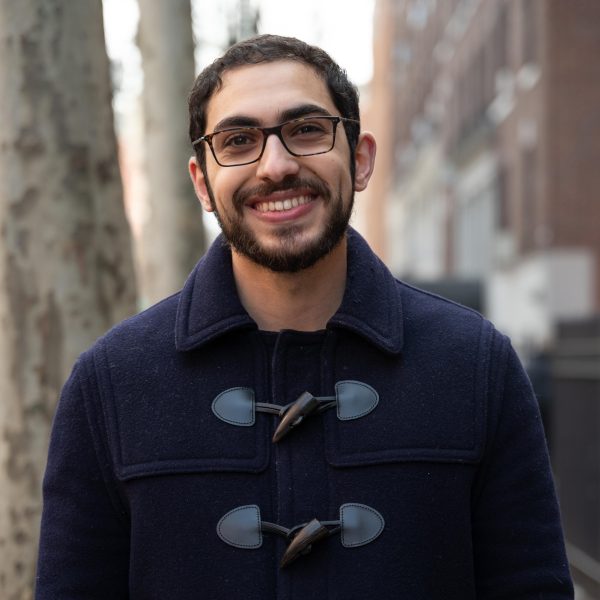Hamilton orders security review after spate of dorm intrusions
NYU president Andrew Hamilton requested that Campus Safety conduct an extensive review of dorm security following a series of intruder incidents last month.
File photo: Coral Tower, an NYU residence hall, is located at the northeast corner of the intersection between East 14th Street and Third Avenue. (Samson Tu for WSN)
December 1, 2022
After a series of security failures allowed intruders to enter multiple NYU residence halls and led to the resignation of one officer, university president Andrew Hamilton has ordered a full-scale review of safety protocols and procedures at the buildings.
In November, intruders breached security in Coral Tower, Alumni Hall, Third Avenue North and Lafayette Hall in four incidents. Five additional incidents of criminal trespass were also reported by NYU Campus Safety during the same period. The string of intrusions has since prompted criticism over safety in on-campus housing.
Fountain Walker, the head of Campus Safety, acknowledged the concerns of residents in a Nov. 30 email to students living in on-campus housing. He said he will announce measures the department will take to improve dorm security once the review is completed.
“The residence halls are your homes while you are at NYU,” Walker wrote in the email. “We understand that, and we want you to feel safe and secure in them. We take these incidents very seriously; I know how troubling they must be to all of you, and as the person responsible for safety on this campus, I fully share your sense of concern and frustration.”
During the review process, Campus Safety will evaluate when and where officers are deployed in residence halls, and potential distractions for those officers, including other tasks that may detract from monitoring entrances and exits.
The review will also include an assessment of garbage pick-up and delivery — services provided at dorms that Walker said may provide an increased opportunity for trespassers to enter dorm buildings. During an incident at Third North last month, an intruder was believed to have evaded security by entering the building through a loading dock. Campus Safety and the New York City Police Department were unable to locate the trespasser after an eight-hour search.
Campus Safety will also evaluate the communication system currently used during safety-related incidents, which residents have criticized. When an intruder breaches dorm security, residents should receive texts and email alerts instructing them to stay in their rooms and lock their doors if there is an ongoing search, according to NYU spokesperson John Beckman. Residence hall administration will also often send an email to residents informing them of a trespass, but in some instances, this has come days after the incident was resolved.
Last week, an intruder bypassed security, jumped a turnstile and entered Lafayette Hall. One student said she was followed and harassed by the intruder. Afterward, she filed a complaint with Campus Safety, claiming that the department did not effectively communicate with students during and after the incident.
Earlier last month, an intruder evaded security at both Alumni Hall and Coral Tower in separate incidents reported two hours apart. Neither dorm’s staff informed its residents until Nov. 3, two days after the incident occurred. A Coral Tower resident said that Campus Safety officers did not take them seriously when they said they may have come in contact with the intruder inside the building. One Campus Safety officer resigned after the incident, according to Beckman.
Beckman said that if a trespasser gains access to a residence hall, Campus Safety officers in the building are required to contact the department’s communication center, and officers are sent to the location to search for the intruder. The department also informs the NYPD, which ultimately decides whether to arrest the trespasser when apprehended. Campus Safety officers are not authorized to conduct arrests. After an intruder is found, the university can request to bring forth trespass charges.
Beckman added that photos of intruders are shared among all Campus Safety posts on campus. Additional officers are also usually stationed in affected buildings for a few days after an incident. He said that officers are stationed in dorms at all times, and the turnstiles in each dorm serve as a physical barrier for unauthorized individuals.
“At this point, we are not aware of any particular issue or aspect to student residence halls that make them more inviting targets than any other type of residential building in New York for the kind of incidents we have seen recently,” Beckman said. “While that would be worthwhile information to have, the University’s focus is going to be on what steps it can take — short term and long term — to prevent any more unauthorized intrusions.”
A number of trespasses occurred in residence halls during the 2021-22 academic year. A repeat dorm intruder harassed students in Lafayette Hall last November. In April, a trespasser entered Rubin Hall on at least three occasions. Walker later apologized for the department’s response to the Rubin incidents.
Contact Carmo Moniz, Lauren Ashe and Yezen Saadah at [email protected].



























































































































































